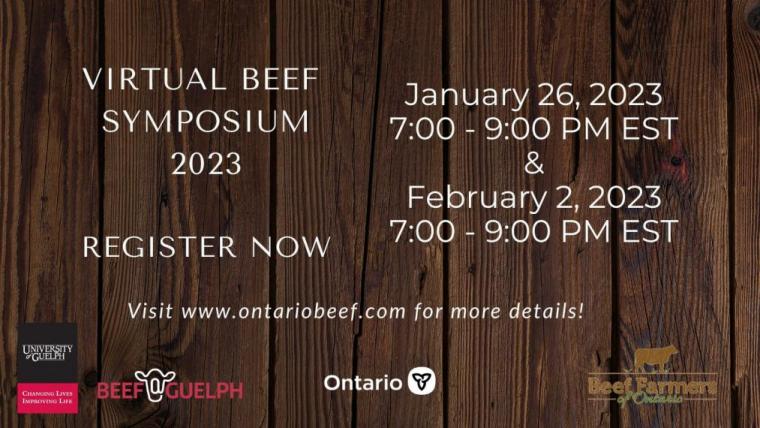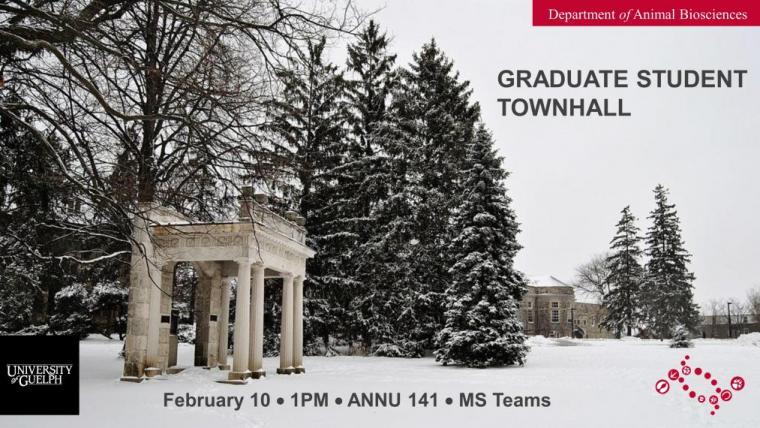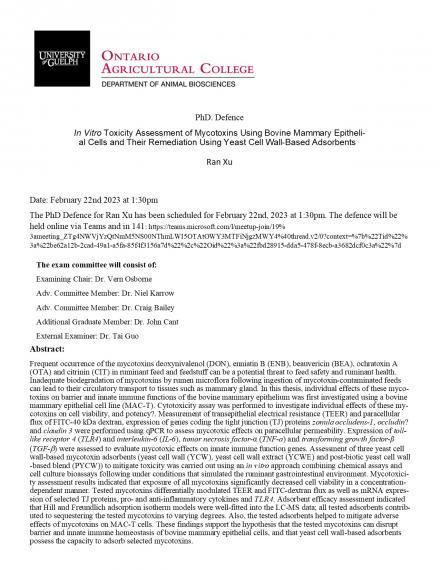Monthly Calendar
Primary tabs
Secondary tabs


CGIL Seminar - "Economic improvement of on-farm dairy cattle mating decisions"

ABSc Graduate Student Winter 2023 Townhall

CGIL Seminar - "Partition of the genetic trend of French dairy sheep in Mendelian samplings and long-term contributions"

CGIL Seminar - "Genomic prediction with non-additive genetic effects"
